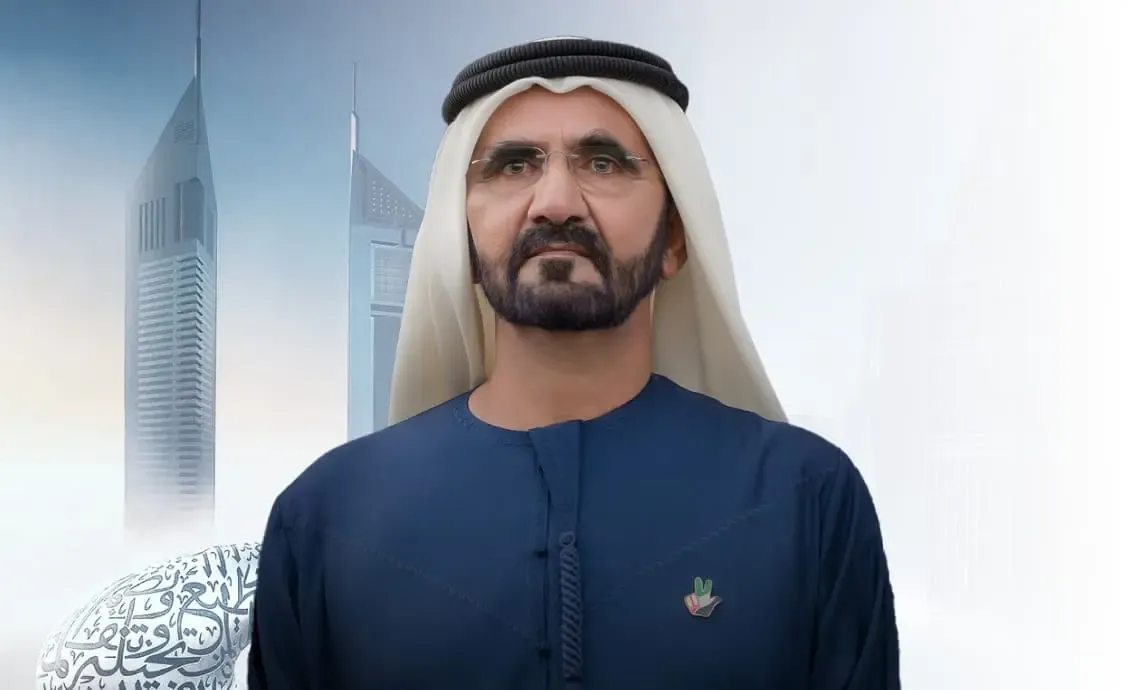Lessons from Dubai’s Economy and the Leadership of Sheikh Mohammed
At Dar Al-Tharwa, we aim to review this transformation with our readers. Sheikh Mohammed’s professional vision for Dubai’s economy has made the city one of the most attractive economic centers globally.
Dubai Before and After Sheikh Mohammed
Fifty years ago, Dubai was a small city on the Persian Gulf, with an economy largely based on fishing, pearling, and traditional trade. Even today, nearby cities along the Gulf maintain a similar situation, with the sea providing the main source of income for their residents. Before the 1970s, infrastructure was very limited, the population was small, and there were no skyscrapers or advanced ports. Many believed that without vast oil resources like its neighbors Dubai had little chance of becoming an economic power.
However, with the rise of Sheikh Mohammed bin Rashid Al Maktoum, Dubai’s economic history changed dramatically. He not only ruled as a political leader but also acted as an economic strategist and visionary, transforming the city from a local port into a global hub for trade, tourism, and investment. The difference between Dubai today and fifty years ago is fundamental: a city once dependent solely on regional trade has now become one of the world’s major financial centers, hosting millions of migrants, tourists, and investors.
At Dar Al-Tarwah, we aim to review this transformation with our readers. Sheikh Mohammed’s professional vision for Dubai’s economy has made the city one of the most attractive economic centers globally. Last year, a large number of investors from Europe arrived in Dubai to shape their financial future in this city. This article explores Sheikh Mohammed’s fascinating perspectives on Dubai’s economy and future.
Background of Sheikh Mohammed
Sheikh Mohammed bin Rashid Al Maktoum was born in Dubai in 1949 and assumed governmental responsibilities from a young age. He received his academic and military education in the United Kingdom, and upon returning to the UAE, played an active role in establishing governmental institutions and developing infrastructure. In 2006, he officially became the ruler of Dubai and immediately pursued rapid development.
He is recognized not only as a political leader of the UAE but also as one of the most important economic leaders in the Arab world. His future-oriented vision, ability to manage crises, and bold execution of large-scale projects have positioned him alongside the leading figures in contemporary economic development.
Dubai’s Achievements under His Leadership
- Construction of Burj Khalifa, the tallest tower in the world, symbolizing audacity and foresight.
- Development of Jebel Ali Port, one of the largest and busiest ports globally.
- Establishment of free trade zones, attracting international companies.
- Hosting Expo 2020, a global event that strengthened Dubai’s position.
- Expansion of the tourism industry, with projects like Palm Jumeirah and Dubai Mall.
Today, Dubai is recognized for its diverse population and an economy based on innovation, financial services, tourism, and international trade. This transformative path would not have been possible without Sheikh Mohammed’s leadership.





